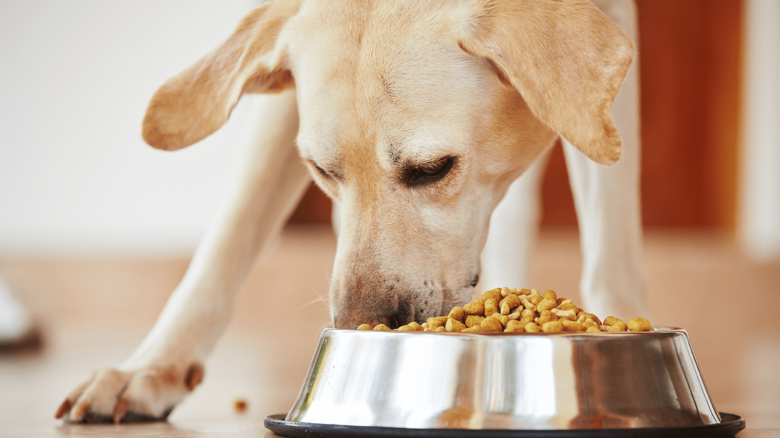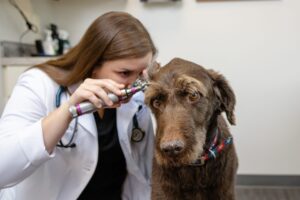Your pet’s diet is important to his overall health, as it affects everything from his physical health, behavior and lifespan. A balanced diet tailored to your animal’s needs can keep him healthy, and more active and improve his overall life. This article describes the many ways in which nutrition affects your pet’s health and emphasizes the importance of feeding your pet correctly to its health.
Basic principles of health
Just like with people, nutrition is the most important thing you can do to keep your dog healthy. Pets need the right amounts of protein, fat, sugar, vitamins, and minerals in their diet for their bodies to function properly, grow, and produce energy. Carbohydrates give you quick energy, fat gives you energy and helps your body absorb certain vitamins, and protein helps your muscles and tissues heal. Minerals and vitamins are important for bone health, the nervous system, and overall metabolism.
Food needs and life stages
Pets have very different food needs at different stages of their lives. To grow and develop quickly, puppies and kittens need a lot of energy and calories. Adult pets need a balanced diet to stay healthy and energetic. However, older pets generally need fewer calories and more fiber, except for animals with long-term health problems such as arthritis or kidney disease. It is important to ensure that your pet’s diet is appropriate for its age and life stage.
Possible health effects
The food that pets eat has a big impact on their physical health. It can help overweight people prevent diabetes, joint problems, and heart disease. A healthy, balanced diet supports the immune system and reduces the risk of disease or infection. Additionally, feeding your pet the right nutrition can improve the health of its skin and coat, reducing skin problems and keeping the coat shiny and healthy.
Your behavioral patterns and mental health
The food dogs eat can also affect their mental health and behavior. Not getting enough of certain nutrients can make your pet feel tired, frustrated, or angry. On the other hand, feeding brain-friendly foods can help them think and remember things better, especially older pets. For example, omega-3 fatty acids are known to benefit brain health and can help pets cope with worry and anxiety.
Take care of health problems
Diet is a very important part of caring for a pet with long-term health problems. For example, a dog with kidney disease may need to eat food low in phosphorus to prevent the condition from worsening. It is important to feed your cat a diabetic food that helps control blood sugar levels. Changing your pet’s diet to correct certain health problems can improve his or her life and even prolong his or her life.
Choose the right food
When choosing food for your pet, consider its age, breed, activity level, and health. Most high-quality store-bought foods are healthy, but it’s important to read the labels and understand the ingredients and protein content. Sometimes your vet may recommend therapeutic diets or supplements to correct certain health problems.
What does fresh food do?
Adding fresh, whole foods to your pet’s diet provides more calories and variety. Some fruits, vegetables, and lean meats are natural sources of vitamins, minerals, and antioxidants that are good for your health. But it’s important to know which foods are safe for cats and to introduce new foods slowly so they don’t develop digestive problems.
Observe and make changes
To keep your cat healthy, the food must be checked regularly and sometimes replaced. Your pet’s nutritional needs may change due to age, illness, or lifestyle changes. Regular checkups with your veterinarian can help you understand these needs so that dietary changes can be made to keep the animal healthy.
Conclusion
All in all, nutrition is an important part of keeping your pet healthy. It has a significant impact on their physical and mental health and their ability to cope with long-term situations. To keep pets healthy and improve their quality of life, it is important to understand and meet their nutritional needs at different life stages and health states. Pet owners can significantly improve the health and lives of their animals by providing them with balanced nutrition and properly managing their diet.
FAQs
1. How does a pet’s diet affect its overall health?
Your pet’s diet affects his entire health, from physical fitness to the immune system, energy levels, and even mental health. A healthy diet provides your body with the nutrients it needs to keep working, helps it grow, and prevents you from getting sick.
2. Do dogs’ nutritional needs change as they age?
Yes, pets have different nutritional needs at different times in their lives. Puppies and kittens need a nutrient-rich diet to grow. To maintain their health, adult pets need a balanced diet, and older pets may need a change in their diet for health reasons or because they require less energy.
3. Can Feeding Pets the Right Diet Keep Them Healthy?
Healthy food can protect you from health problems such as diabetes, heart disease, and obesity. Watching your diet can also help manage or alleviate symptoms of long-term conditions such as arthritis or kidney disease.
4. How does a pet’s diet affect its health and behavior?
Imbalanced or inadequate nutrition can change your pet’s mood and behavior, leading to problems such as aggression, anxiety, or sadness. On the other hand, a diet that improves brain health can improve mental health and cognitive function.
5. What should you pay attention to when choosing food for your pet?
When choosing a food for your pet, consider your pet’s age, breed, activity level, and any health needs. Pet food that is good for them should contain the right amounts of protein, fat, carbohydrates, vitamins, and nutrients for their age and health.
6. Do you think there are benefits to feeding your pets fresh food?
Adding fresh, whole foods to your pet’s diet provides more calories and variety. Some fruits, fresh vegetables, and lean meats are natural sources of important nutrients for pets. However, it is important to know which foods are safe and suitable for them.



